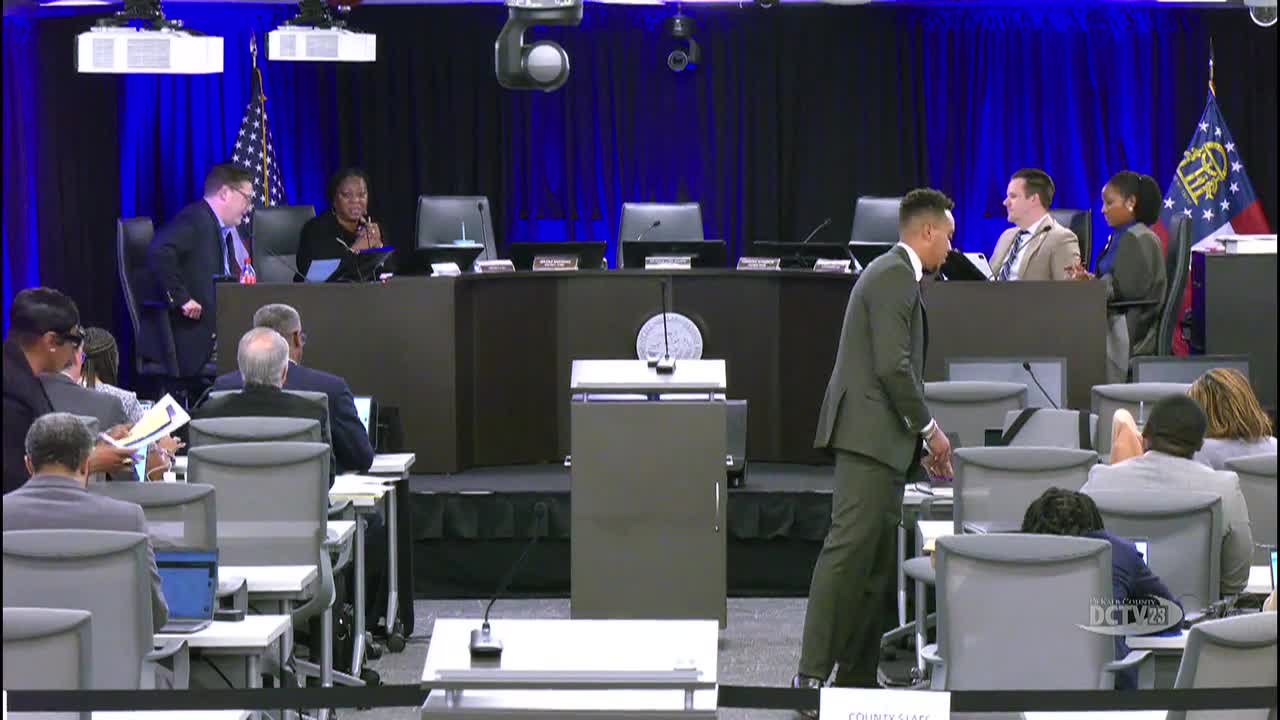DeKalb CEO and attorneys brief commissioners on charter-review recommendations, procurement updates and limits on CEO powers
Get AI-powered insights, summaries, and transcripts
Subscribe
Summary
The county CEO and law department presented Charter Review Commission recommendations and an analysis of which items can be enacted locally versus those that need state action or referendum.
DeKalb County’s chief executive presented highlights from the Charter Review Commission report and urged commissioners to move selected recommendations forward while the law department walked the committee through which items can be changed locally and which would require state action or a public referendum.
The CEO said the Charter Review Commission met many times, held six public hearings and delivered a report in January 2024; the CEO noted the county has already retained the National Institute of Governmental Procurement (NIGP) to review procurement policy and said updating procurement rules is important because the county’s current procurement policy dates to 2014. "It is my expectation that each and every year, by the top of the year, we will have adopted a budget," the CEO said when discussing a proposed change to move the annual budget submission date to Oct. 1 to allow adoption before the calendar year starts.
The law department provided a cross-reference chart that maps each Charter Review recommendation to the report’s section and adds a “home rule” column identifying recommendations that can be enacted locally and those requiring legislative action. Counsel warned commissioners that changing some governance powers (for example, shifting authority between the CEO and the Board of Commissioners) could constitute a change in power that would trigger a referendum.
Commissioners engaged on several governance points: whether the COO or the clerk should track appointments and vacancies (the Charter Review Commission recommended the COO; the CEO suggested that traditionally clerks handle appointment tracking), how to handle CEO authority over creating, abolishing or consolidating departments, and whether the CEO’s tie-breaking vote at Board meetings should remain. Several commissioners suggested language allowing a supermajority to overturn a CEO action to abolish a department; law counsel noted that certain reallocations of power may require referendum and that a cohesive approach is advisable to avoid unintended consequences.
The committee asked administration and the law department to identify which Charter Review items could be advanced locally and which must be bundled for state action or a referendum. Staff said they will prepare clearer draft language and a consolidated document reflecting the committee’s consensus for subsequent review.
Next steps: staff will produce clarified draft language on elections timing, appointment tracking, procurement updates and CEO/board powers for committee and full-board review.
